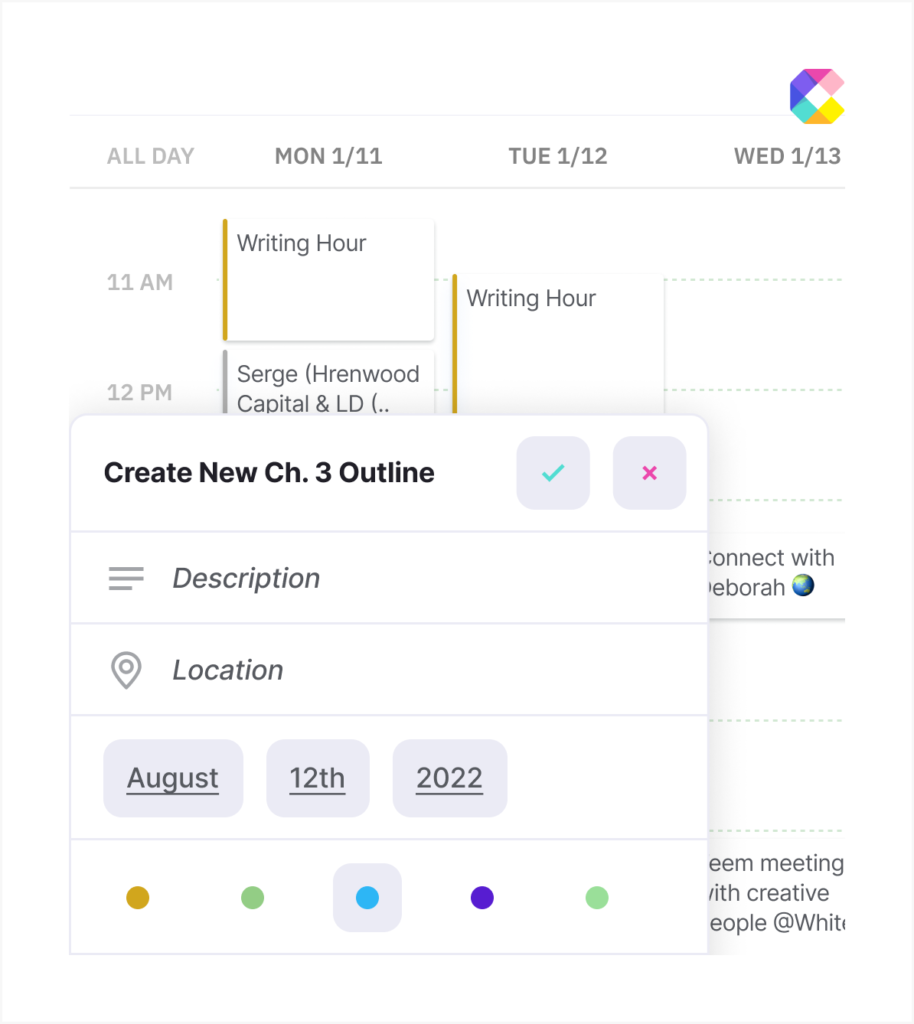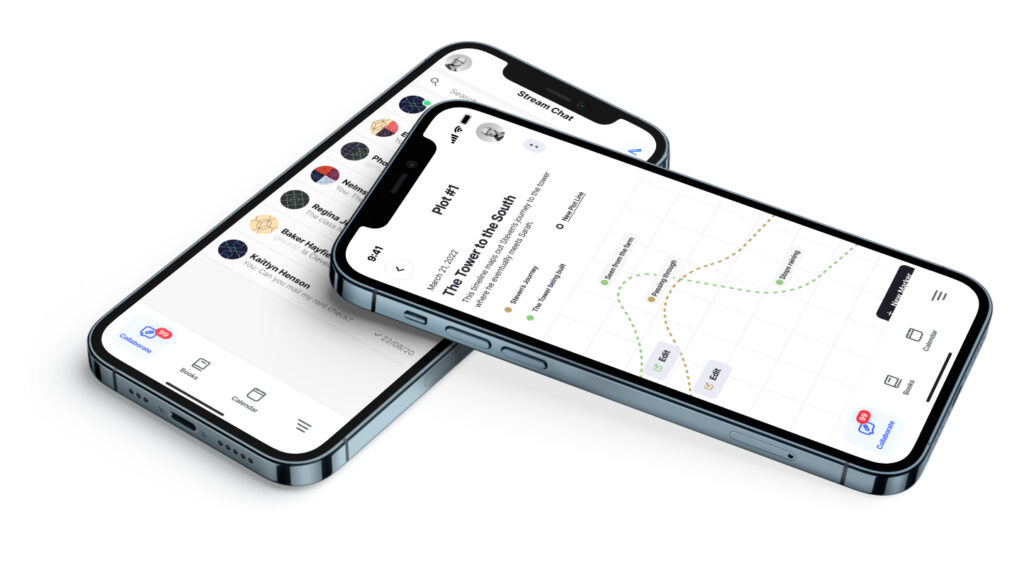Are you writing for your audience? Or are you writing for you and hoping your readers will find you?
It’s no secret that finding your target audience can be tough. So what if you picked your target audience before you ever even wrote the book?
Whether you’re new to writing or you’re a seasoned author with multiple books under their belt, knowing, targeting, and finding your audience is an important step to take if you’re trying to be successful. In this article, we tackle writing to your audience, targeting an audience, and what you need to know to make marketing a breeze. Because yes, marketing and targeting an audience go hand in hand. So give yourself a leg up and increase your odds of success with the tactics, tools, and tips in this article.
If you haven’t considered targeting your audience, then you really need to read this article – your author business might just depend on it.
It’s time to take your knowledge, business, and writing to the next step, and this might be the most important step so far. Don’t waste any time, keep read this article and apply this knowledge today!
How do I target an audience?
The very first—and arguably most important step—is to know your audience.
Who is going to read your book? What kind of books does that reader read? What tropes do they like or love? By doing some research on what your potential reader will enjoy, you stand a better chance of writing content that resonates with readers.
However, it’s important to note that you want to avoid classifying your readership as “everyone” “all women” or anything that’s too broad. The reason this distinction needs to be made is simple: marketing to a broad audience is a nightmare and you might wind up with the jack of all trades syndrome. The jack of all trades syndrome in writing means your book caters to the masses… but resonates with very few. These are books that are considered forgettable, boring, or difficult to finish because there’s something more exciting to read.
So focus on your audience. Read widely in your chosen genre and subgenre. Learn what your readers love, and you’ll be better equipped to cater to them.
But I thought I was supposed to appeal to the masses?
Some well-intentioned individuals might say that the bigger your market, the better. While this might be true in some forms of business, when it comes to books, a niche market is much, much stronger, and easier to cater to.
By trying to appeal to the masses, you’re essentially closing your eyes to what your actual readers are looking for. This is a recipe for disaster, and trust me, you don’t want to launch a book and have it be a total flop—nothing saps the soul like a book that gains no traction or readers.
Instead, find and narrow your niche, learn what your future readers crave, and give that to them. The thinking here is that you want to appeal to the people who will buy your book instead of the people who *might* buy your book.
The nice thing is that it’s reasonably easy to learn what your future readers want; read within your selected genre and niche. Read reviews, learn what readers don’t like, what they love, and what made them decide this is their new favorite author or one they’ll never read again. There’s a wealth of information out there, you simply have to dig through it.
Well, I am my audience, so I know what they want.
Be very careful with this thinking; plenty of people have made the mistake of thinking they know their audience, but in reality, they don’t. Writing what you love is great, but it doesn’t make you an expert in your demographic, market, or niche. There’s no way around this part – you have to do some research and discover what your readers truly want.
If you don’t… well, you are taking major risks. It’s very easy to think your audience is just like you, but they might not be. They might not think like you. So you need to make sure you’re spot on in your knowledge and assessment.
You should also note that, whether you decide to go traditional or independent, you still need this knowledge. Don’t think you can skip this by getting an agent instead, because an agent can’t sell a book that a traditional house can’t market.
Readers crave connection. So finding ways to connect is invaluable. Reading other authors and reviews offers insight as well as potential ideas to help you connect with your future readers. And while you’re working to narrow down your niche, make sure you don’t hyper-focus and wind up with such a small market there’s no money to be made.
Don’t make the mistake of writing the book first, then trying to cram it into a niche or finding an audience for it after the fact. This isn’t an easy or simple task, and it can make for unhappy readers, a stressed author, and serious difficulty marketing your book.
Instead of focusing on drawing people to what you write, write what people want to read. Of course, if you’re writing for pleasure, none of this applies. But if you want to make writing books a business, then you need to create a product that will resonate with readers and entice them to buy.
Readers are people.
I know this sounds obvious, but thinking of your audience as individuals with hopes, dreams, aspirations, and lives of their own makes it a lot easier to figure out who you should be targeting. Information like where they might live, what they do in their downtime, who they are, what they like, what media they consume, and so on can really help you add depth to your writing that’ll speak to them. How cool is it to read a book and discover the main character you love loves the same things you do? These details will resonate with readers when done right, or flop when handled poorly. Assuming every soccer mom is a closet alcoholic isn’t a good look. Assuming every soccer mom loves her kids but feels the stress and pressure of being a mom is relatable. When you’re creating characters, make sure you handle your demographic and your character with care. Otherwise, you might alienate the very people you’re hoping to draw in.
What kind of things do I need to know to understand my audience?
Start with where they live. What seasons, flora and fauna, activities, and so on they experience is a great place to start building a rapport.
Next, the age, sex, race, and ethnicity of your potential readers is important, along with their education level, financial status, occupations, marital status, if they have children, and their potential religion. What generation are they likely to be? Knowing their background, upbringing, values, goals, and even if they live rurally or not can be important.
The more you can know or learn, the better you can cater to your readers. And the more likely you are to make them rabid readers who want to read everything you write.
Other benefits to knowing your audience:
You’ll have better ideas about where and how to promote. If your reader is a young adult, try TikTok, Instagram, or Snapchat. If your readership are boomers, then utilize Facebook and Amazon ads. Knowing who will buy your book and what their buying habits are helps you narrow down what to write, where to promote, and even the marketing approach that works best for other authors.
By creating an author brand, by catering to your readers, by leveraging every bit of information you know about your readers, you can more effectively write and market the kinds of books they will love. And that is a recipe for success. Or as close as you can get in this business, anyway.
What’s your first step?
Start with what you love to write. Pick a subgenre and niche that appeal to you. Then, learn what those readers love or hate. Reading reviews is a great way to learn what they don’t like, but reading the book and the reviews of authors writing in your genre and niche will better equip you with the tools to truly target your audience with a laser focus that’ll have you writing the kinds of books that bring in money hand over fist.
And if that’s what you want to do with your writing, then now is the best time to get started.
When in doubt, read, research, cruise reviews. Oh, and I’m not suggesting stealing other authors’ ideas. I know you wouldn’t do that, but my lawyers want me to say it just in case. Stealing isn’t nice, don’t do that. Besides, I know you have what it takes to write something better than the competition. It’s up to you to get out there and prove me right.
But start in the right place—start with knowledge, a plan, and an idea that’ll take you miles in the right direction.
What are you waiting for? I’ve given you the tools, but you’re still here reading. Are you looking for something else, some other information or a tidbit to help you along? I mean, there are other articles, so read them. All of them. Become the grandmaster of writing knowledge and help other fledglings along. Because by the time you’re done with all this reading, you’re going to be a pro and people will be coming to you for advice.
Just don’t forget to take care of yourself. Your business. Your physical and mental wellbeing. So get to it, learn, read, write, win, repeat! You can do this! Just don’t forget about Charlii when you’re a millionaire with a huge fan following. I’m proud of you, now onward and up.

Goals Calendar
The goals calendar will help keep you on track and ensure deadlines are met. It will keep you accountable to your goals and help ensure timely story completion.



